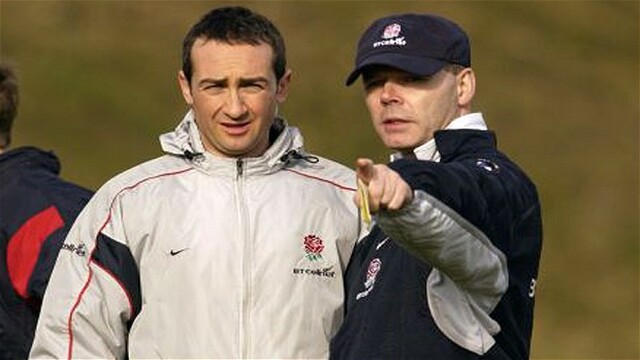Rugby has always been a team game on the field of play but it appears it is becoming increasingly so off the pitch.
Danny Cipriani’s praise for the role his ‘mentor’ Steve Black has played in his recent resurgence underlines how coaches continue to benefit from the input of outside influences.
Support systems extend far beyond the training paddock these days and while Sale boss Steve Diamond will no doubt have played his part in rescuing Cipriani’s career, his duty as a director of rugby is to utilise and leverage every tactic or technique that could lift his players and boost his side’s performance.
Watch Graham Henry’s latest video courses on ‘Planning for the season’ & ‘Constant Improvement’
Stuart Lancaster is another set to benefit from Cipriani’s rehabilitation with the fly-half seemingly set to tour New Zealand this summer, but the England coach has long been open to such innovation when it comes to support systems. A keen student of the game and the coaching and management techniques that have proved successful for others, Lancaster was quick to draw on the success of Team GB cycling supremo Dave Brailsford when he took charge of the national side.
Brailsford’s quest to do ‘100 things 1% better’ was swiftly adopted by Lancaster as was Matt Parker, British Cycling’s former Head of Marginal Gains who is now England’s Head of Athletic Performance. The man responsible for things such as heated cycling shorts designed to aid recovery and the policy of travelling with the same pillow to ensure a good night’s sleep is set to be one of the key figures in England’s push for World Cup glory.
Lancaster was not the first England coach to think outside the box and seek specialised support. Over a decade ago, Sir Clive Woodward recruited the services of visual skills coach Sherylle Calder and, along with many of the squad, has since praised her contribution to their 2003 Rugby World Cup success.
Calder’s expertise, that centres on a player’s all-round vision, his ability to process that information and react accordingly, was also utilised by South Africa coach Jake White four years later and as a result she is the only person in the history of the game who can boast back-to-back World Cup triumphs. South Africa’s Bryan Habana and Jean de Villiers are among those grateful for her input both then and now.
Woodward also appointed Dave Reddin, who he described as being “above any other fitness expert in world sport”. His influence was felt throughout the most successful period in the history of English rugby with his support also seen as pivotal to their World Cup success. He later parted company with England but rugby’s loss was rival sports’ gain with Reddin having since worked with the British Olympic Association and currently the Football Association with his remit having expanded to head of performance services.
Black was another who initially emerged as a fitness expert with Newcastle Falcons – and United – where he formed what has been a career-long partnership with Jonny Wilkinson who remains his greatest fan. But it quickly became clear Black was so much more than a training ground disciplinarian.
Labelled the ‘most positive man in the game’, he was recruited by the then Wales coach Sir Graham Henry who also included him in his management team of the 2001 British & Irish Lions’ tour to Australia. Black is loathe to give himself a job title, preferring to say that he just tries, “to help the environment become successful, give support and advice to managers, coaches, players, set up the best way to train, the best way to recover, manage relationships with teams and squads and between players and coaches."
Black’s influence continues to be felt today with his mentoring of both Wilkinson and Cipriani but he is not the only non-coach working wonders with today’s stars.
Get a free 3-day trial when you join The Rugby Site today’
Margot Wells has built a formidable reputation for inspiring significant improvement in the performance of players who are already considered ‘elite’. Wells is a sprint coach who made her name by guiding her husband Allan to the 100m gold medal at the 1980 Olympics and her promise to ‘make you faster within 90 minutes’ of meeting her has won her many admirers in a sport where speed and power is so highly valued.
She has refined the running technique of the likes of Cipriani, who describes her as ‘phenomenal’, and fellow internationals James Haskell, Paul Sackey – but her star pupil is currently the hottest talent in European rugby – England fullback Mike Brown.
The recently-crowned Six Nations Player of the Championship is riding a rich vein of form that could be traced back to when he began working with Wells a few years ago. Brown has been quick to praise her for her part in his ascent while Wells is in no doubt about the positive impact. “He jumps higher, kicks further, runs faster and is more athletic,” was her recent assessment.
These are just a few of the experts working independently in the game today and it is clear there is a wealth of knowledge and expertise available to coaches everywhere. But there are no guarantees and, just like team selection, it remains the responsibility of the coach to strike the right balance.


